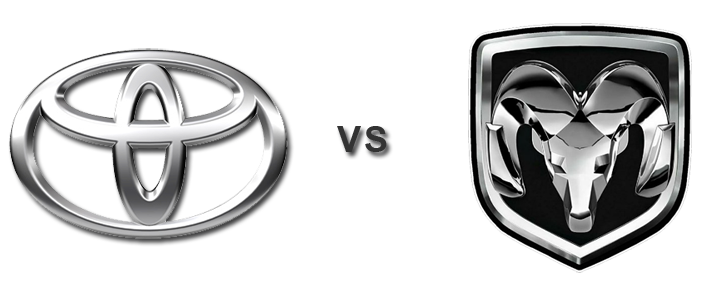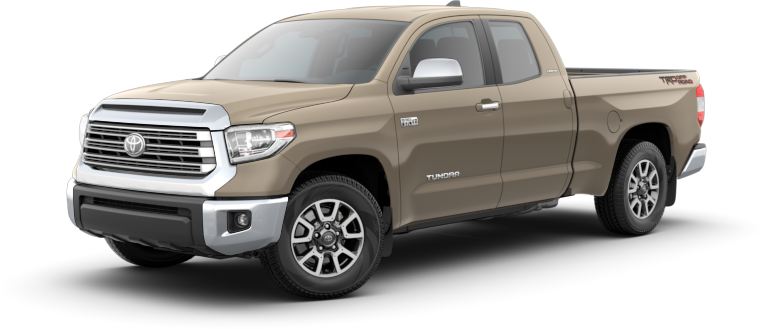
Why the Tundra Is a Better Truck Than the Dodge Ram 1500
The truck market is chaotic. There are a lot of options, and not every available vehicle is going to fit your lifestyle or budget. A Toyota Tundra Double Cab SR5 with the 5.7L engine and All Wheel Drive is an excellent choice, but so is the Dodge Ram 1500 Crew Cab Tradesman 4WD. Which one is better for you? Find out in this 2016 Tundra vs Ram 1500 comparison.
The Dodge Ram 1500
The Tradesman 4WD is a short bed version of the Dodge Ram that has three engine levels to choose from. Most buyers will go with the 5.7 Liter V8. This engine produces 395 horsepower and 407 foot pounds of torque. With an automatic transmission, you can haul up to 1550 pounds in the bed or tow just over 10,000 pounds. When empty, expect to get 15 miles per gallon in town and 21 miles per gallon on the freeway.
One of the features that sets the Dodge apart is the independent rear coil spring suspension. This gives you better handling through corners. Some of the more expensive versions of the truck are even equipped with a rear air ride system that keeps the bed at a constant level. This helps to control any load you are carrying or hauling, but is complex and expensive to install and maintain.
The Toyota Tundra
Like the Dodge, the Tundra Double Cab has plenty of room for passengers. The rear doors are much larger though. These full-sized doors give passengers easier entry to your truck. This limits the wear on your upholstery and trim. The Tundra is also equipped with Toyota’s Entune entertainment system. This feature integrates personal electronics with your truck and works with most smartphones.
To keep things simple, the Tundra only offers two engine options. The high powered 5.7 Liter V8 is preferred by those who will be doing any serious towing or work. The power plant produces a respectable 381 horsepower and 401 pounds of torque but without the wonky variable displacement system that the Dodge relies on. Fuel economy is about what you would expect from a truck. The EPA estimates 13 miles per gallon for city driving and 18 miles per gallon on the highway. The solid axle in the rear can support more weight, and the truck can haul a payload of 2000 pounds or tow 10,000 pounds.
The Tundra also has some of the best safety ratings of any truck in its class. In addition to an acceptable crash test performance, Toyota installs avoidance systems as standard features on all new vehicles. Owners enjoy blind spot warning systems and rear cross traffic alerts. The Toyota also has a better reliability rating, and its four-wheel drive system performs better off-road.
The Better Deal
The two trucks are comparably priced. Expect pay about the same for the initial purchase, taxes, and financing. Toyota’s superior safety features and ratings help to reduce some of the insurance premiums and the higher mechanical reliability also reduces the Tundra’ repair and maintenance costs.
Where the Toyota stands out is the resale value. The brand reputation for Toyotas is historically strong. Even though American truck makers are overall dominant, there is higher demand for used Toyotas in the secondary market. This higher resale value gives you more of your initial purchase price back when you are ready to trade or sell your truck. It reduces the overall cost to own the vehicle and makes the Tundra the better bargain.
The winner of this Tundra vs Ram 1500 matchup is the Toyota. It has more features, performs better, and is the more affordable of the two.


